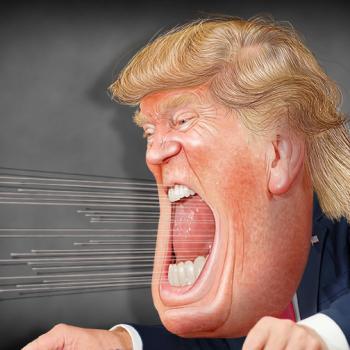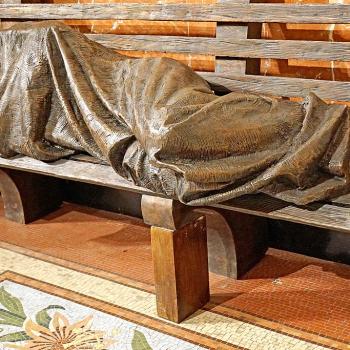
It is hard not to think about the science fiction movies and novels I’ve seen and read through the years, movies and novels which gave us a warning of the various dark futures which could happen if we were not careful and prevented them from coming to pass. They gave us various dystopian futures, showing us that some of them came to be because the people were complacent, and others came to pass because their worst instincts encouraged them to take humanity through a rather dark path in history. The most famous of them, George Orwell’s 1984, is also the one which is most often referenced, I wish its warnings had been properly heeded as we see the doublespeak presented in it being the kind of messaging being given to us by the Trump administration (as can be found in the way Trump, and those working for him, constantly talk about making things great for the people while doing everything they can to loot the republic and diminish all the safe guards which have been put in place to protect ordinary citizens, or in the way Trump and his official call for the repeal of civil rights because they claim work for civil rights is racist). However, it is certainly not the only one. I have found myself thinking about the futures presented in other science fiction works, such as, for example, the ones seen in Paul Verhoeven’s Robocop and Starship Troopers; both movies warned us where our society could be going if we were not careful, with Robocop warning us of the potential that society would be taken over by corporations and corporate interests, and Starship Troopers showing us the way government could be taken over by elites, overriding the ordinary citizen’s rights by making them privileges. Similarly, I cannot but see that Robocop specifically warned us what would happen if corporations take over the functions of society so that law enforcement itself is privatized and run by corporate powers, and see how we have failed to listen as we are heading that direction under Trump. Republicans have long indicated how they wanted to privatize the basic functions of government, turning basic rights into things which are to be bought and sold (with oligarchs determining the cost behind each and every right). I also see elements of Starship Troopers, with the fascism parodied in it, being what Trump is after, where he and his supporters want to turn the military into an organization which obeys orders without question (as can be seen in the way Trump has fired military generals, lawyers, and judges which he feared would stand in his way, questioning unlawful orders).
I have, of course, seen and read many other works of science fiction which warn us about various aspects of our present situation. One of my favorite writers for television and cinema, Nigel Kneale, was worried about the way television entertainment could and would be used to manipulate society, so that society as a whole would be stuck watching television , taking in all the propaganda, while being rendered inactive so that they will not serve as a challenge to the powers that be. This can be seen in his science fiction classic, The Year of the Sex Olympics (1968), which predicted, in many ways, the rise of reality television, but also, showed the way reality television could and would be used to manipulate emotions and have those who watch approve whatever happens around them. News, and with it, politics, can now be seen to functioning in this way; indeed, this makes it not so surprise that Trump made his way into politics through reality television, and many in his administration are chosen in ways which echo his actions on television.
Philip K. Dick is a science fiction author who I have read extensively, while others are familiar with him mostly from two popular movies based upon his works (Blade Runner and Minority Report). His works constantly explore the potential rise of a tyrannical, dystopian state and the way people need to come together to take it down. This is especially apparent in works like Flow My Tears, The Policeman Said (using alternative realities to indicate a world in which such a dystopian state existed), and his VALIS “trilogy,” in which he warns us that the fight against the abuses of the past, against authoritarian dictators and would-be dictators, continue throughout time. He represented this fact by the saying that “The Empire never ended,” using the Roman Empire (in its worst, most abusive form) to represent the powers of darkness which seek to dominate and control the world, but also to show that while such powers can be successful for a time, the time is limited, meaning, they can be defeated. There is both horror but also hope in his works. He gives us a warning of the darkness which remains, the darkness which wants to regain control and destroy anything and anyone which stands in its way, but he gives us hope by showing the way ordinary people can fight against the darkness, that the darkness is not all-powerful, even if it sometimes appears to be such. He shows us that those fighting for justice, for what is good and true, are not alone; they will have help (such as God, or some other alien force finding a way to intervene in history so us to help humanity overcome the powers that try to dominate and control it). It is through such help those who actively resist the darkness will have a way to win (even if it will take a great struggle, and often, some comes of loss coming from those fighting against the darkness). He suggested that this is what happened when Christianity emerged on the world scene: Christians fought against the powers of darkness which ran the Roman Empire, and in the end, the Christians were (to some degree) victorious; but they also got complacent as they thought the victory was complete (when it was not), which is why the evils of the Roman Empire could and would rise again and again throughout history, requiring more people to rise up and fight against them. Dick, therefore, not only had a vision of the potential horror which lies before us, he thought it did not have to have the final say, that we could successfully fight against it and have the power and authority evil has on society overturned (at least temporarily until it tried to rise up again). His interest in Christianity and early Christian history had him suggest that Christians (among others) should listen to the real message of Christ, embrace it, embrace the grace Christ offers, and use it to continue on against the fight against the powers of darkness. To be sure, Dick’s vision was often tainted by elements of Gnostic dualism, but, the combination of the horror and the hope in the midst of the horror is what makes his works invaluable today. I find myself thinking about his saying, “The Empire never ended,” when I see Musk (and others), giving a “Roman salute” (which is not classically Roman, but modern, and employed by fascists). When I see that, and the support being made for such actions, it seems that Dick’s warning about the darkness of the Roman Empire still being with us today has some truth to it.
Today, right before us, we see the powers of darkness are doing what they can to reshape society and transform it into the dystopian horror presented to us by many science fiction authors. We see oligarchs being given positions of power and authority, using what they have been given to transform the United States, hoping to make sure that the functions of the government will be privatized and turned over to the corporations for control. They want to limit who can and will receive what government should be giving to everyone, making it that the rich and powerful are the ones deemed worthy of receiving the most benefits, with the poor and vulnerable seen as those who deserve little to none of them. We see they are destroying health care in the United States (both by seeking to end Medicaid, which is a major source of funding for hospitals and clinics, without which, they will close down in mass, but also by denying the funds needed to continue medical research, research which is necessary if we are to prevent needless pain, suffering, and death).
Many of the would-be oligarchs have made it clear they think the common person, those in need, are parasites to exterminate, and they want to make sure they establish a system which allows them to make their dream come true ( a system which will, out of necessity, be turned into a police state, so as to make sure the system and it unjust laws are brutally enforced). They devalue life and value of everyone but the elite, which means the ordinary American, the ordinary worker, will be turned into an easily dispensable underclass, one which is controlled, in part, through manipulation (like in 1984 and in The Year of the Sex Olympics).
It didn’t need to be this way. It shouldn’t be this way. We were warned. The oligarchs, and those connected with Trump, made it clear what they plan to do, that is, the kind of dystopian state (reflecting the worst qualities of the Roman Empire) they plan to bring about; we have had the movies and literature which warn us what happens when that kind of state arises. We have been shown how such a state must deny the dignity of the human person, of human life. We have been warned. So why is it Christians have been at the forefront of bringing in this new fascism? Why have they become apologists for brutality and abuse, instead of following early Christians who wrote works against such practices? It is something I have seen developing for decades, meaning, it is something which should have received proper attention and stopped. It wasn’t. The problem is that those promoting such a dark form of Christianity were treated as a minority position, as radicals who had no real power or authority. But, thanks to money, thanks to the would-be oligarchs and dictators, their voice has been magnified, who have been working hard to make them and their views appear to be the norm. They have turned Christianity upside-down and inside out. And through them, it now is apparent that Christians have helped bring back the likes of Nero and Caligula.
Thankfully, not every Christian has gone along and supported the tyrannical state being developed. There have been and continue to be Christians who have been fighting against the growing darkness. They have seen what is going on. While it seems they have failed, and perhaps, in a sense, they have, it is not the time for us to give up. Only if we give up can we truly fail. We must look back to the time of the martyrs, to the time of the Roman Empire at its most brutal, and see how Christians overcame the darkness and helped transform society. We must embrace Christ, the way of Christ, the way of justice and human dignity. We must live in hope, the hope that as those Christians who followed Christ could be victorious in the past, we can be victorious once again. We must realize the work is not for us alone. We must promote and help establish justice, defending the value of both the common good but also of every human person. We must see our fight is a fight which is to be had in common with others, that is with those non-Christians who also want justice in the world. Our faith is important, for it is what inspires us, helping us as we find ourselves struggling to understand the darkness which lies before us. But, we must know, this time around, we will be facing off against many of our fellow Christians, those Christians who show themselves willing and able to embrace the darkness and embrace the way of genocide and death. We must not be surprised about the evil we will see coming from Christians, as Christian Scripture and tradition point out how religion can and will be abused by those seeking their own private gain.
* This Is Part XLV Of My Personal Reflections And Speculations Series
Stay in touch! Like A Little Bit of Nothing on Facebook.
If you liked what you read, please consider sharing it with your friends and family!
N.B.: While I read comments to moderate them, I rarely respond to them. If I don’t respond to your comment directly, don’t assume I am unthankful for it. I appreciate it. But I want readers to feel free to ask questions, and hopefully, dialogue with each other. I have shared what I wanted to say, though some responses will get a brief reply by me, or, if I find it interesting and something I can engage fully, as the foundation for another post. I have had many posts inspired or improved upon thanks to my readers.













